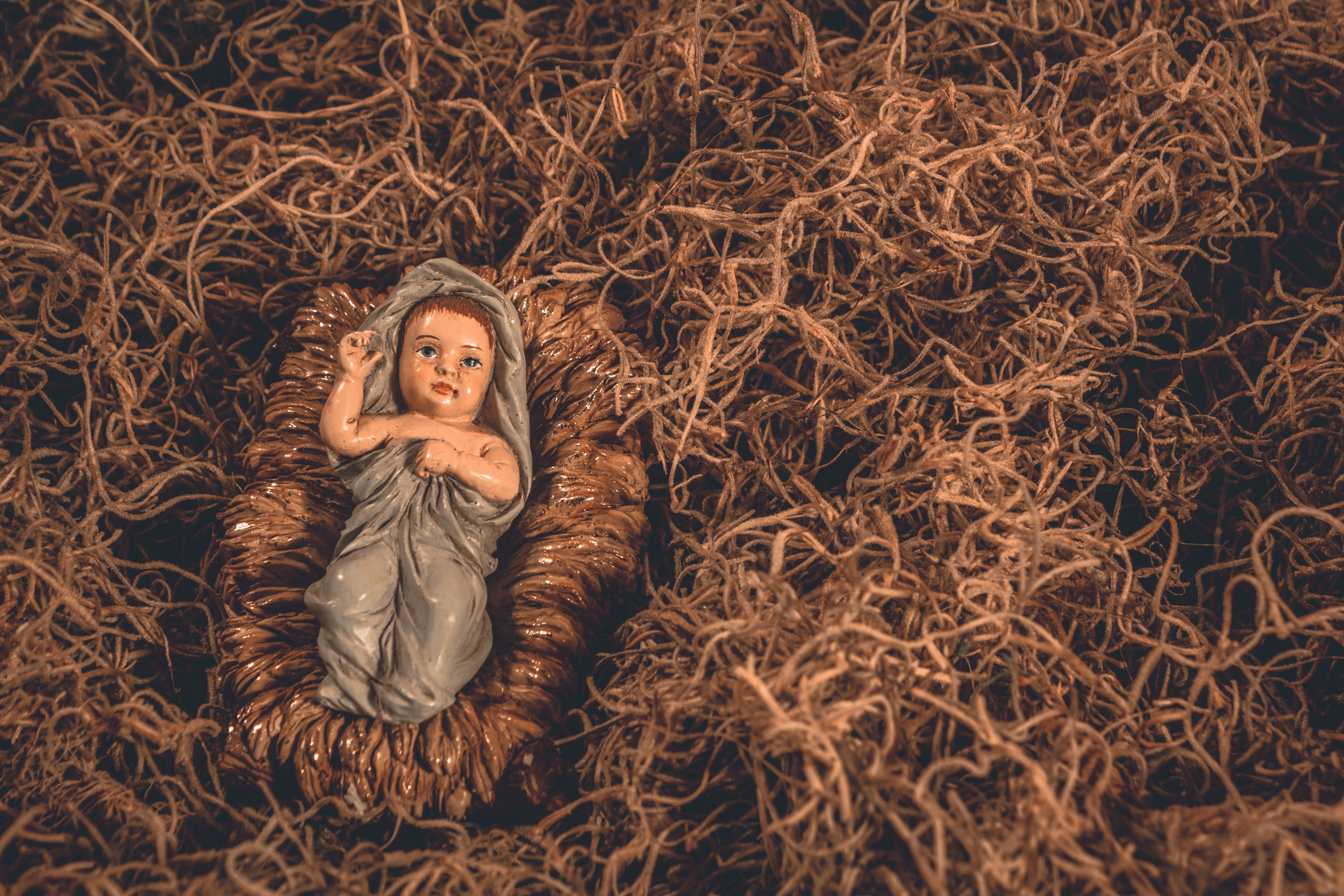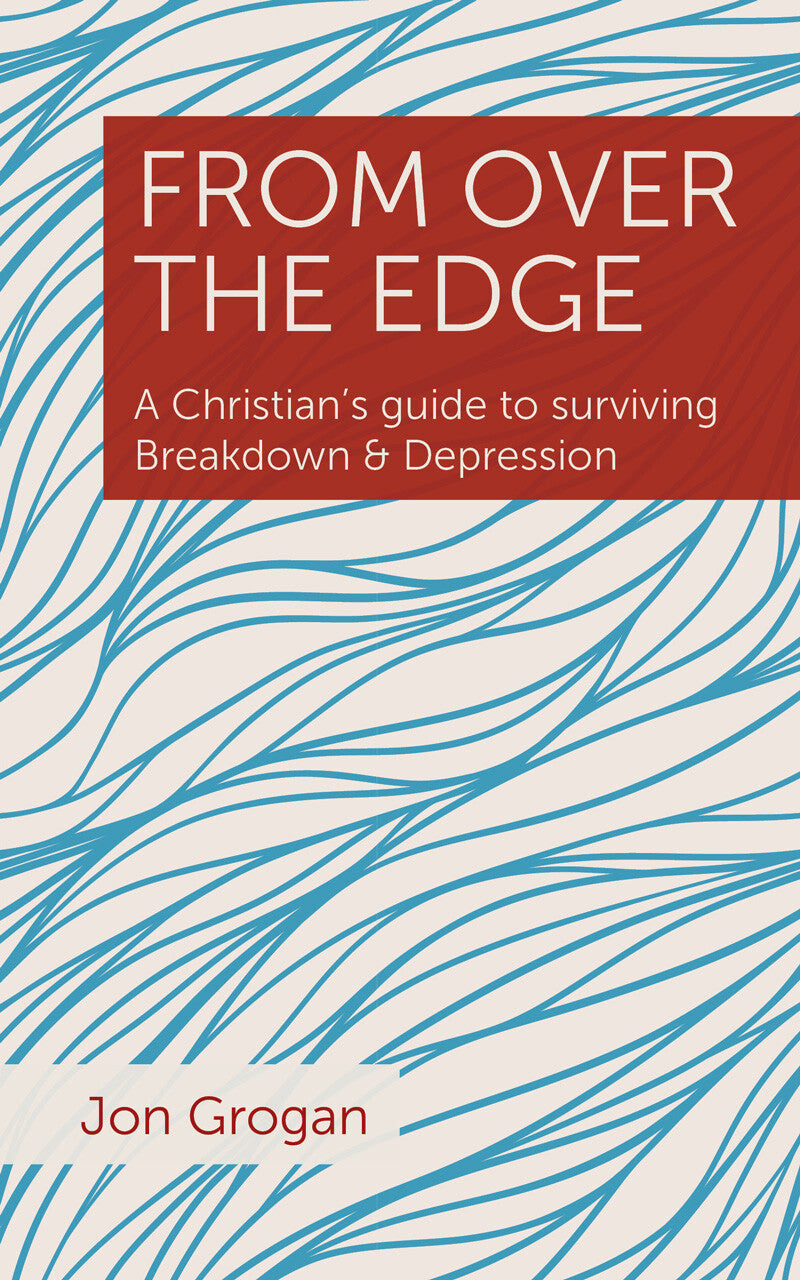GUEST BLOG: Christmas can be a challenging time for many people. As part of a December focus on mental health Jon Grogan, author of From Over the Edge, introduces us to his quieter approach to Christmas.
There is something about putting up Christmas decorations that lifts the spirits, isn’t there? In our household, the family jokes always come out about some of our more dodgy-looking fripperies. We can now laugh at our kids’ younger efforts at Christmas crafts that adorn the tree, and we love these yearly reminders of their infancy and of Christmases past. I personally don’t go in for the relatively recent trend of celebrating Christmas as a kind of extended lived-out pantomime (which as a new dog owner I have learned includes dressing up our pooches). But I do know that some of things we put up at home are certainly on the kitsch side and yet we still merrily display them, with a kind of inverted pride. There is a sense that by faithfully making our home look festive, however tasteless, we are continuing in a tradition that was handed down to us and which people who celebrate Christmas all around us are honouring. We dutifully deck our halls and in so doing find joy amid the bleakness of mid-wintertime. I am reminded of John Betjeman’s poem “Christmas”, which paints a wonderful picture of a dreary post-war London being made cheery by various and perhaps unlikely contributors, including the reference to there even being “bunting in the red Town Hall” (the “red” presumably a comment by the conservative Betjeman on the building’s political leaning as well as the colour of its bricks), declaring “Merry Christmas to you all”.
fripperies. We can now laugh at our kids’ younger efforts at Christmas crafts that adorn the tree, and we love these yearly reminders of their infancy and of Christmases past. I personally don’t go in for the relatively recent trend of celebrating Christmas as a kind of extended lived-out pantomime (which as a new dog owner I have learned includes dressing up our pooches). But I do know that some of things we put up at home are certainly on the kitsch side and yet we still merrily display them, with a kind of inverted pride. There is a sense that by faithfully making our home look festive, however tasteless, we are continuing in a tradition that was handed down to us and which people who celebrate Christmas all around us are honouring. We dutifully deck our halls and in so doing find joy amid the bleakness of mid-wintertime. I am reminded of John Betjeman’s poem “Christmas”, which paints a wonderful picture of a dreary post-war London being made cheery by various and perhaps unlikely contributors, including the reference to there even being “bunting in the red Town Hall” (the “red” presumably a comment by the conservative Betjeman on the building’s political leaning as well as the colour of its bricks), declaring “Merry Christmas to you all”.
But here’s the but. Let’s not pretend that for everyone Christmas can be made a jolly time like flicking on the switch that illuminates the lights on our tree. I suspect there will be people reading this for whom this resonates, for a number of different reasons. I have personally known some very difficult Christmases when I was suffering from depressive illness, and even in an extended period of recovery spanning several years, I always found Christmas time a trigger for relapse. What the majority of people (which included me before my illness) don’t fully appreciate is that there is a huge pressure to be happy at Christmas, for everything to be perfect, and that this can be, well, incredibly stressful. Unfortunately, we have all been seduced by the consumerist-driven lie that if we strive (and fork out) for a certain version of Christmas, we will be rewarded by untold warm and fuzzy feelings guaranteed to keep us warm and fuzzy until the merry go-round starts again next Christmas.
And this really is not bah-humbug, I promise you. I absolutely love Christmas. But I have learned a few things about how to approach its exuberance, and one of these is to think about what sounds to focus on, even the sounds of silence. Let me explain.
One of the things that I discovered from a therapist when I became ill was that I am an introvert. This epiphany made sense of a lot things for me, and it was remarkable that I had not really previously given the matter any thought, not until I was forced to address how I had been doing life. And although I can still turn on extrovert-mode when needed as I navigate life in an extrovert-dominant world, I have realised that this is not my default setting and that I need to be mindful of my natural introvert self. The most obviously introvert season of the Christian year is Lent, when we are encouraged to journey inwards and review our spiritual progress in periods of quiet and stillness. Christmas, by contrast, seems, in the way it is celebrated at least, altogether noisier, more upbeat, more “out there” (essentially extrovert) and so brings its own challenges for some of us who might be struggling with stuff.
I once attended an all-age Christmas church service when the message was that rather than it being a “Silent Night”, the first Christmas would have been a very noisy occasion, with noisy animals in the stable, a noisy delivery of the baby, noisy angels etc., etc. And I could totally understand that this was a message that was relevant for the kids there, many of whose default setting was “noisy” and who weren’t being expected to be suddenly silent in church at such an exciting time of year for them. But because of the place I was in at the time, I found myself scudding home from that service and wanting to be quiet, to be still. As I write this piece, I am listening to a collection of Christmas choral music which includes the melancholy “Coventry Carol”, as well as a setting of the Gregorian responsory “O Magnum Mysterium” plus various lullabies for the new-born Jesus. These are the sounds I am choosing to tune into. And although I know there is a noisy version of Christmas going on out there, which I will certainly enjoy dipping in and out of over the season, there is also the wondrous, beautiful mystery of the manger scene which reflecting on sometimes feels a bit like that world of magically suspended time when our normal environment is hushed and transformed by a covering of freshly fallen snow. The Chinese philosopher Lao Tzu said that peace and quiet govern the world, and at moments like this I feel that he might have actually been right. It sends shivers down my spine, as does the silence-inducing question that Betjeman asks at the end of his poem:
And is it true? For if it is…
No love that in a family dwells,
No carolling in frosty air,
Nor all the steeple-shaking bells
Can with this single Truth compare –
That God was man in Palestine
And lives today in Bread and Wine.”
Go well, and may your Christmas be a healthy mixture of noise, peace, joy and reflection.
Jon Grogan is a lawyer and lives in Newcastle upon Tyne with his wife and two children. If you found this blog post helpful you can read more from Jon in his book From Over the Edge: A Christian’s guide to surviving Breakdown & Depression. Get your copy here.











